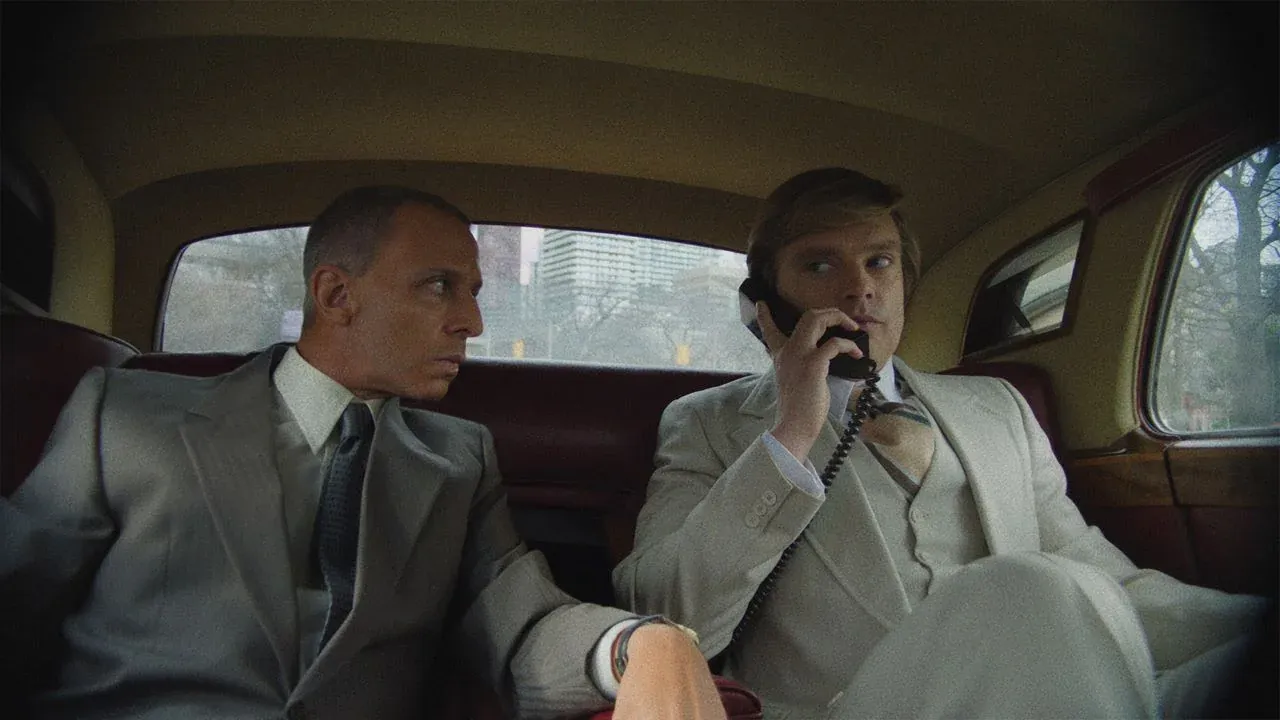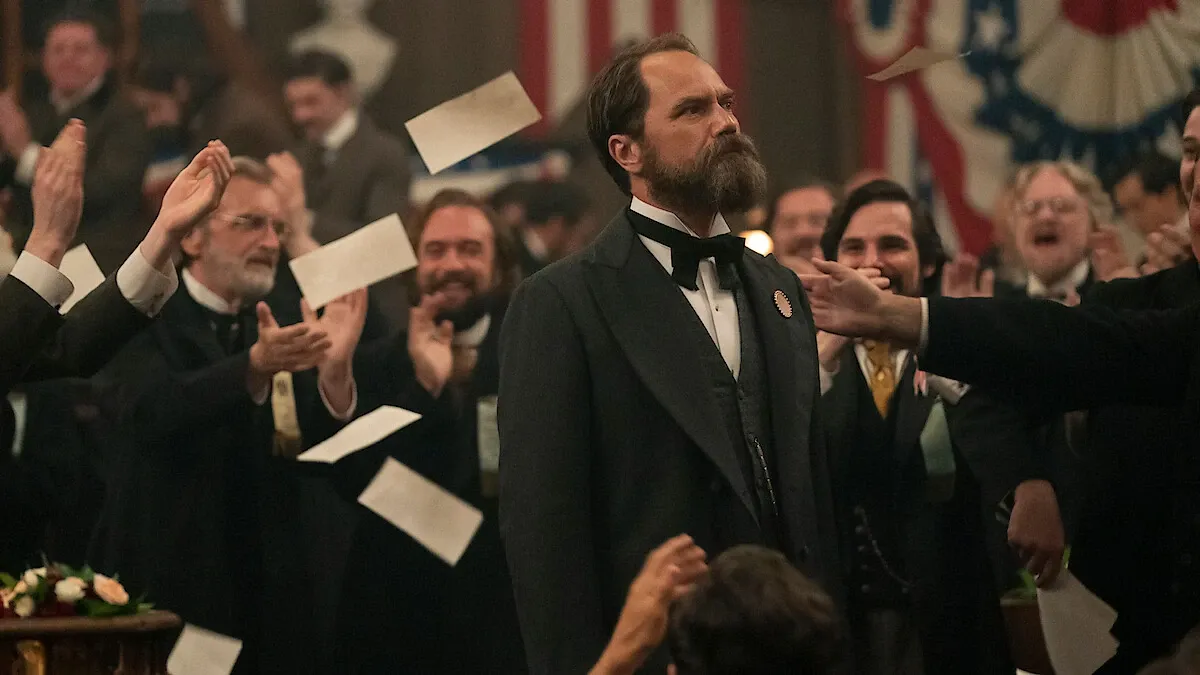The Apprentice, directed by Ali Abbasi, is Sebastian Stan's film. It has other great performances, but this is his show from beginning to end.
Stan plays Donald Trump, a caricature of a man in reality, and it takes a moment to understand just what that means. For a while, it feels like Stan is simply hitting the easy staples of Trump's clownish repertoire. Then, as the film goes on, we realize that's all that Trump has. He's an infantile sponge that absorbs all that is tacky. His mannerisms, speech patterns, and hubris are an amalgamation of things he doesn't understand but emulates nonetheless. Stan's brilliant performance embodies the excess and bravado as it does the impossible: it reveals a morsel of humanity behind the monster.
Abbasi's film isn't a biopic, but more of a creation myth. Its focus is on two decades of Trump's early career, as it ties his corporate birth to the fate of New York itself. Abbasi splits the timeline with smart technical tricks that remove the need for typical signposting. We know the decade changes because the 16mm film stock switches to gaudy VHS. The blustering punk tracks give way to corporate rock as everyone names their price to join the other team.
Trump meets Roy Cohn (Jeremy Strong), a bullish lawyer bereft of morals and decency. Cohn instantly recognizes kinship with Trump and takes the inept youth under his wing. His cultivation of Trump's personality is the story's focal point, and Abbasi plays it like a recreation of Mary Shelley's Frankenstein.
Strong plays Cohn as a fascinating contradiction. A lawyer who doesn't care about law, yet fights for his friends with fierce loyalty. A celebrity hound who trades on secrecy, yet hides every aspect of his real self. He is at once alluring and repellent; dignified yet trashy. In reality, those who knew him still argue whether he was a closeted gay man or not. He left behind nothing but devastation and a legacy of hate, yet even in death his wreath at the AIDS memorial remembered him as a victim.
Strong and Abbasi can't capture all of these nuances, and they don't even try. In one of the only major faults of the film, Abbasi plays up Cohn's sexuality to the point that it almost comes off as a remnant of "gay panic." Strong amps up his effete mannerisms in the first half, where Abbasi frames Cohn like Satan of Wall Street. In one egregious scene, The Apprentice implies that Cohn's sexual desire for Trump is what drove their initial friendship.
Any biopic is reductive by its very nature, yet tying Cohn's sexuality to his amorality feels like the wrong choice in this regard.
Luckily, both elements are absent in the second half, and Strong's performance finds the nuance and tragedy behind the bravado. As Cohn comes to terms with the monster he created, you can almost feel sorry for him – even as we can see the effects of his actions to this day.
Abbasi's film works best when it plays like a double feature with Martin Scorsese's Casino or Wolf of Wall Street. The biblical retellings of American sin, where the rich and powerful craft rituals of wealth to pretend all this was destiny. As Trump overlooks the Manhattan skyline in his ostentatious tower, Abbasi draws blistering conclusions about a man compensating for his shortcomings. It's a vicious, angry takedown of someone who deserves every bit of it.
Is it enlightening? Do we learn anything more about Trump than before? No, probably not. But is it an entertaining takedown that reminds us of how manufactured his myth truly is? Absolutely. As a film about hubris and failing upwards, The Apprentice is as devastatingly funny as it is incisive. Sometimes such a reminder is enough.













